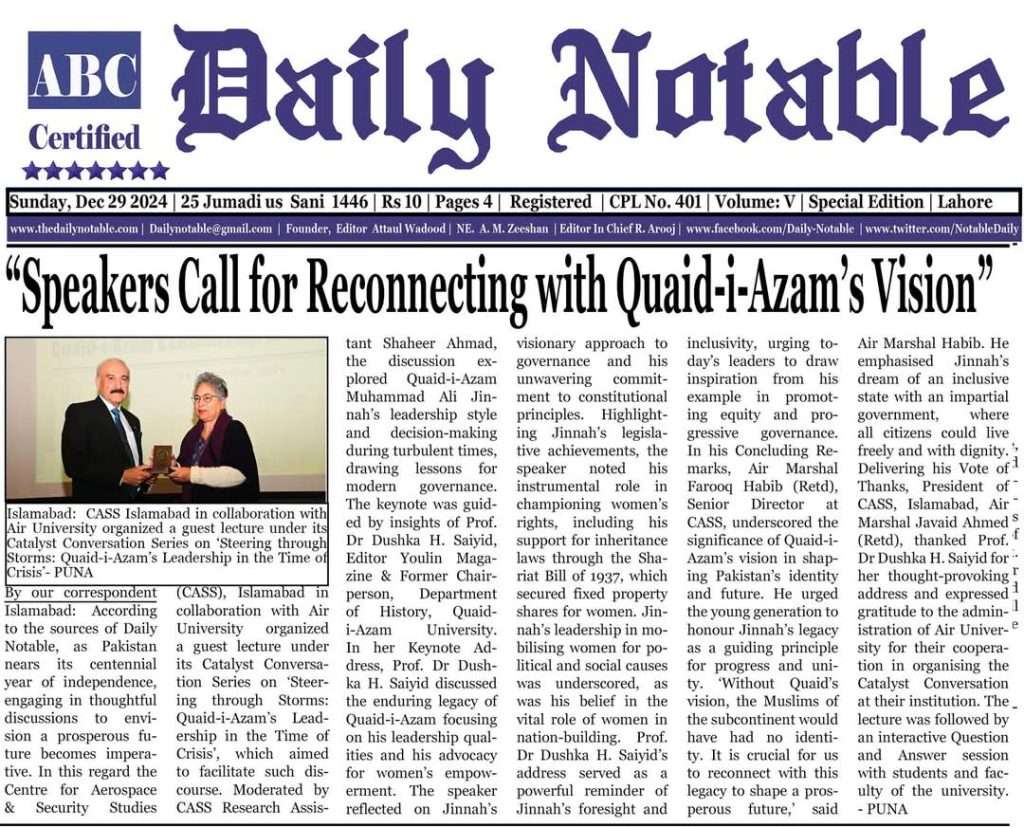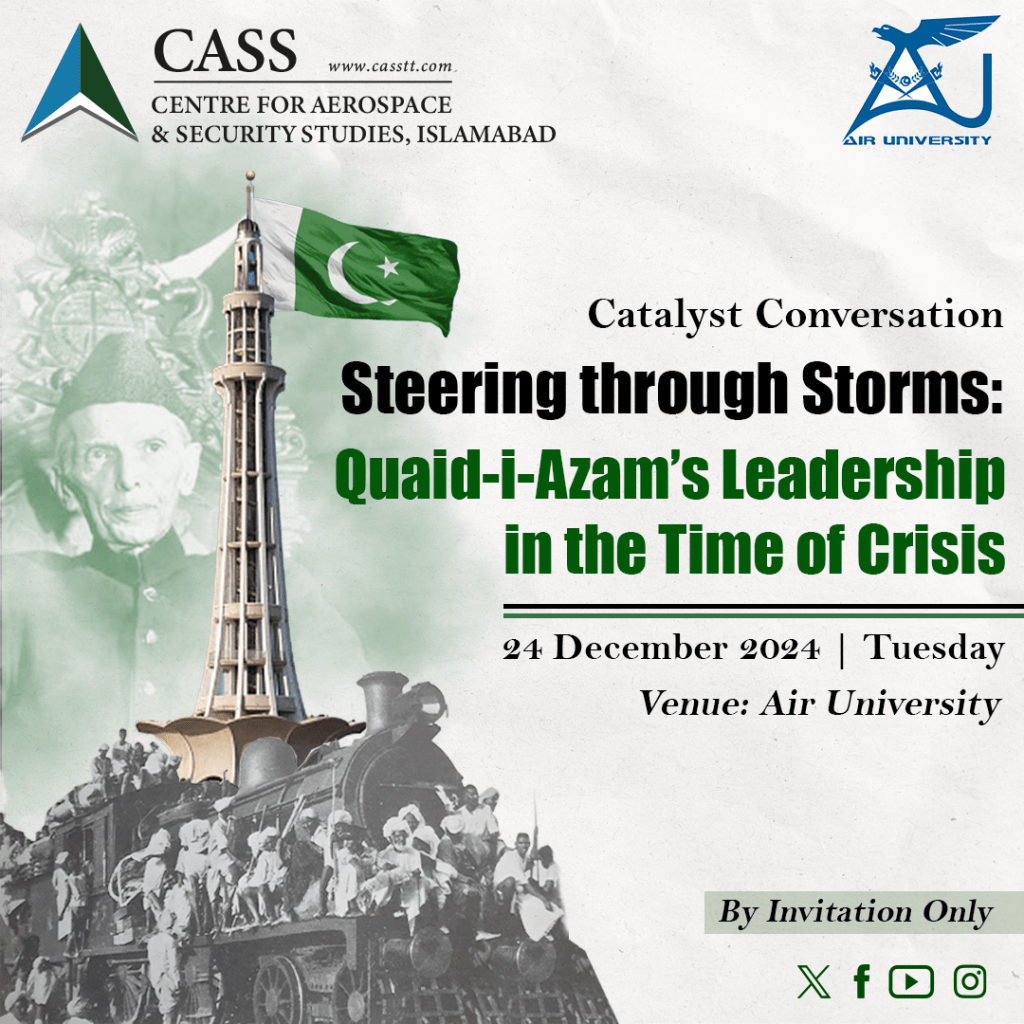Muhammad Ali Jinnah played a crucial role in shaping the political and social landscape of South Asia during a time of profound upheaval and uncertainty. His leadership during the independence movement, which culminated in the creation of Pakistan in 1947, was marked by strategic foresight, resilience, and an ability to navigate through complex crises. This is particularly relevant today as contemporary leaders face challenges that require a similar combination of courage, clarity of vision, and adaptability.
In this regard, CASS-Islamabad, is organising a special lecture under its Catalyst Conversation Series which seeks to explore Jinnah’s leadership style, decision-making and strategies he employed to steer the Muslim community through turbulent times. By highlighting his personality traits, the lecture aims to draw parallels between Jinnah’s leadership during crisis and the demands of modern governance, exploring lessons that can be applied in current political, social and economic contexts. The key objectives of the lecture are outlined below:
- Analyse Quaid-i-Azam’s leadership style during critical moments in history,
- Examine how Quaid’s decisions and political strategies impacted the Muslim community and broader region,
- Identify key lessons from Quaid-i-Azam’s leadership that are applicable to current challenges in political leadership and governance,
- Cultivate a deeper understanding of Jinnah’s vision, communication style, and negotiation tactics during periods of crisis.
Press Release
News Coverage

News Links











